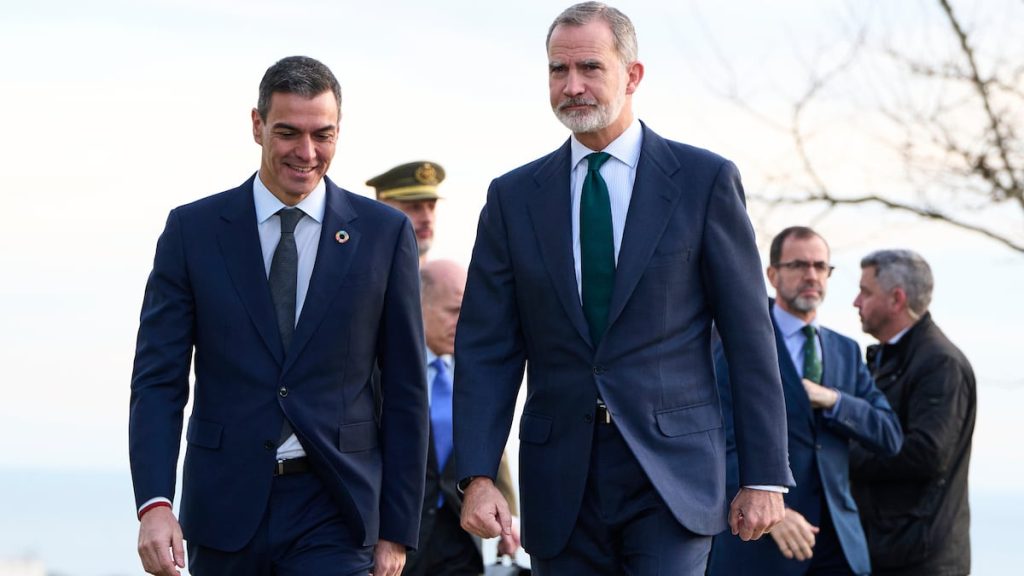Felipe VI will not attend the inauguration event for the 50th anniversary of Franco’s death next Wednesday. The King had been invited by the Government Presidency to the solemn event, which will take place at noon at the Reina Sofía Museum Auditorium in Madrid, but will not attend “for reasons of agenda,” as reported by sources from La Moncloa. The leader of the PP, Alberto Núñez Feijóo, has also declined the invitation after stating that Pedro Sánchez’s decision to organize events for the anniversary of the dictator’s death divides Spanish society. The absence of the King had caused discomfort in PSOE circles, where it was interpreted as a gesture from La Zarzuela not to upset the PP and Vox. Felipe VI will participate in various events related to the anniversary later on, such as the institutional visit to the Nazi concentration camps of Auschwitz (Poland) and Mauthausen (Austria), as well as an event commemorating the important role of the Monarchy in the Transition.
The event on the 8th, to which representatives of Spanish society (business people, unionists, academics, ministers, and deputies) have been invited, will serve to present the program, with over a hundred events in streets, schools, universities, and museums, that will take place throughout the year under the theme “Spain in freedom” and will culminate around November 20, the date of the dictator’s death. The Zarzuela argued that the inauguration event coincided with the ceremony of presenting credentials at the Royal Palace by the new ambassadors accredited in Spain. The official agenda of the Royal House includes audiences with the new ambassadors from the United Kingdom, Canada, Panama, Gabon, Malta, and Greece on Wednesday morning. According to sources within the Royal House, these ceremonies are scheduled well in advance and could not be postponed as the traditional diplomatic corps reception is scheduled for the following day, and ambassadors must present their credentials to the head of state before attending.
When the project was announced on December 10, on the Day of the Victims of the Civil War and the Dictatorship, Sánchez stated that the anniversary should serve “to pay tribute to all the people and groups” that transformed Spain from a bleak and isolated country “into one of the most complete democracies in the world.” Despite the Prime Minister presenting it as a celebration of Spain’s democracy, the decision to commemorate the death of the dictator was criticized by the president of the PP. Despite this, the Chief of Staff of Pedro Sánchez, Diego Rubio, called his counterpart in the PP, Marta Varela, to reiterate the invitation, which Feijóo declined. Feijóo criticized the decision, stating that they are moving towards a Spain without Sánchez, in contrast to those who seem nostalgic for the era of Franco. In his end-of-year review, he predicted that the Government in 2025 would be caught up in legal battles, talks with Carles Puigdemont in Waterloo, and perhaps some issues related to Franco.
In conclusion, the decision of King Felipe VI not to attend the inauguration event for the 50th anniversary of Franco’s death has caused controversy and divided opinions in Spanish political circles. The decision was seen as a gesture to avoid upsetting certain political parties, leading to discomfort within certain sectors of society. Despite this, the King will participate in other events related to the anniversary and the important role of the Monarchy in Spain’s Transition period. The commemoration of Franco’s death has sparked debate and criticism, with some viewing it as an opportunity to pay tribute to Spain’s democratic achievements, while others see it as a divisive and unnecessary act. The events planned for the anniversary aim to highlight the progress made by Spain over the past decades and celebrate the country’s journey towards democracy and freedom.


